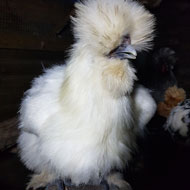
Infected silky fowl detected at Macau poultry market
The first human case of avian influenza A has been reported by the Centre for Health Protection (CHP) of the Department of Health. The 58-year old male patient is a Macau-based goods supplier who had been in contact with an infected silky fowl, at a wholesale poultry market. Both the patient and his wife are now in hospital, receiving treatment in a quarantined area.
The public are being advised to take rigorous measures to maintain hygiene. Those who are likely to handle poultry have been advised not to touch any droppings and to wash eggs with disinfectant. When cooking any poultry related products, the public have been advised to cook products immediately and thoroughly. All members of the public have been instructed to wash hands regularly and to wear protective breathing masks, if they develop any untoward symptoms.
A spokesman for the CHP said: "Recently, Guangdong reported the first human case of avian influenza A(H7N9) in this winter. Human H7N9 cases have also been detected in Zhejiang, Jiangsu and Fujian while human H5N6 cases in Hunan and Guangxi since November. Locally, four faecal dropping samples of birds collected from Mai Po Nature Reserve in late November were detected with H5N6 virus. Our risk assessment shows that the activity of avian influenza viruses is expected to increase in winter based on their seasonal pattern.
"The public should avoid touching birds, poultry or their droppings and visiting poultry markets or farms during travel, particularly in the upcoming Christmas and New Year holidays. If feeling unwell such as fever or cough, wear a mask and seek medical advice at once. Travellers returning from affected areas should consult doctors promptly if symptoms develop and let them know your travel history.
"We will remain vigilant and work closely with the World Health Organization and relevant health authorities to monitor the latest developments."
For more information, visit the CHP’s avian influenza page. http://www.chp.gov.hk/en/view_content/24244.html



 The Veterinary Medicines Directorate (VMD) is inviting applications from veterinary students to attend a one-week extramural studies (EMS) placement in July 2026.
The Veterinary Medicines Directorate (VMD) is inviting applications from veterinary students to attend a one-week extramural studies (EMS) placement in July 2026.